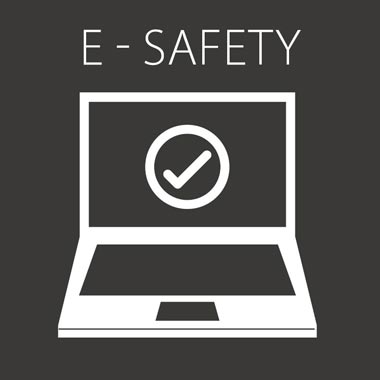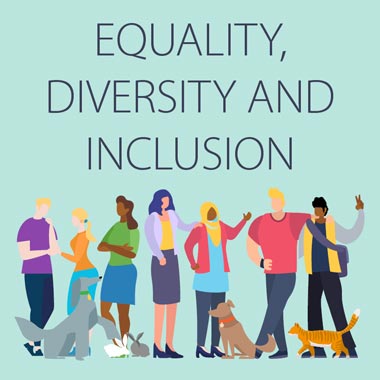Think Before You Prompt: Safe and Smart AI Use
Artificial Intelligence (AI) tools are becoming a regular part of student life — helping with research, writing, studying, and creativity. When used wisely, they can be incredibly useful. However, it’s important to understand that AI also comes with risks. Like any powerful technology, it can cause problems if used carelessly or without awareness. This page highlights the main dangers of AI use for individuals and students, helping you to stay safe, protect your data, and use AI responsibly and ethically in your studies and everyday life.
AI intro Student prompt guide AI policy Try Copilot
🧠 1. Privacy and Data Risks
- Personal or sensitive information shared with AI tools may be stored, leaked, or reused without consent — each AI tool will have their own complicated T&Cs. Try logging into Copilot with your CAW account for a safe experience.
- Uploading coursework or personal details could breach data protection laws (such as GDPR) — try omitting details or submit example data.
- Some AI systems use input data to train future models, meaning your information may not stay private — refer to each AI tools’ specific T&Cs.
📰 2. Misinformation and Inaccuracy
- AI can produce false or misleading content (“hallucinations”) that sounds convincing — always fact-check before committing to a final draft.
- Students may unknowingly include incorrect facts in their work if they do not verify sources — submit facts to AI and ask for confirmation, backed-up by UK based sources.
🤖 3. Overdependence on AI
- Relying too heavily on AI weakens problem-solving, creativity, and independent thinking — utilise AI as a tool to increase your knowledge and develop your skills.
- Students may struggle in exams or practical tasks without AI support — try using AI to generate MCQs on specific topics to understand your weaknesses.
- It can reduce confidence in one’s own ability to research, write, or analyse — try submitting your own work to AI and asking it to list ways that you can improve your own content and to explain why.
⚖️ 4. Academic Integrity and Plagiarism
- Using AI to fully generate essays or answers is considered plagiarism — use AI tools to support your learning.
- AI may reproduce copyrighted material or other people’s ideas without attribution — ensure that you reference your AI sources.
Read our AI Policy to stay up-to-date.
⚠️ 5. Bias and Discrimination
- AI systems learn from human-created data that may include bias — ask for alternative views or utilise additional sources of information.
- This can lead to unfair, stereotyped, or discriminatory outcomes, especially in sensitive topics — you can also conduct a peer review of your content to gather further insight.
🔒 6. Security Threats
- Cybercriminals can use AI to create realistic scams or phishing attempts — always question who you are interacting with and why, if you are unsure, start a new conversation with the organisation using contact details that you have found online.
- Interacting with unverified AI tools or downloading AI-generated files can expose devices to risk — utilise trusted and authenticated sources.
💭 7. Mental Health and Wellbeing
- Excessive use of AI chatbots can reduce real-world social interaction and emotional connection — stay social and develop real relationships.
- Constant exposure to “perfect” AI-generated images, videos or ideas can harm self-esteem or cause anxiety — social media is already flooded with AI generated content, so stay aware and limit your social media to content from your friends and family.
💼 8. Job and Skill Displacement
- Overreliance on AI can weaken human skills such as communication, empathy, and creativity — utilise AI to identify your weaknesses and provide solutions to develop and grow.
- As automation increases, individuals may struggle to adapt to changes in the job market — stay aware of changes within your industry and adapt or train to stay ahead.
🕳️ 9. Lack of Transparency (“Black Box” Effect)
- AI systems rarely explain how they reach conclusions — ask follow-up questions to expand on your understanding.
- This “black box” effect makes it difficult for users or students to know whether outputs are fair, ethical, or accurate — ask for references to be included in the output or specifically ask for alternative viewpoints.
- Openly state when you use AI — letting people know when you have used AI to generate material, informs them that they should take precautions against the items listed on this page.
🤝 10. Reduced Collaboration and Peer Learning
- Depending on AI instead of classmates or teachers can limit discussion and teamwork skills — stay social and reach out to staff and your peers.
- It may isolate learners and hinder interpersonal development — try to work collaboratively with others.
📜 11. Inconsistent Rules and Awareness
- Many companies and AI tools have evolving or unclear AI policies — periodically paste policies/T&Cs into AI and ask for a privacy and safety overview.
- Students might unknowingly break rules around AI usage or data handling — stay up-to-date with our AI policies.
🌍 12. Wider Societal Concerns
- Disinformation is fake news that is created and spread deliberately, by people who know full well that it’s false/misleading/harmful — always fact-check before using or sharing information.
- Deepfakes: AI can create fake videos, images, or news that mislead the public — stay vigilant and check facts from multiple sources.
- Erosion of Trust: People may begin to doubt what is real or authentic — use well-established/trusted organisations and check multiple sources for a more rounded overview.
- Job Losses: AI is already having an impact on certain industries and job roles — stay up-to-date within your niche role and watch trends in your industry, to stay ahead of the curve.
- Environmental Impact: Training large AI models consumes vast amounts of energy and resources — this will become more efficient over time, but it is definitely something worth considering when purchasing your own AI tools.
Tips
Paste or upload T&Cs/Policies/Contracts into an AI tool to gain insight into what the organisation is doing with your data — ask for a Privacy and Safety Overview. Similarly you can ask for cancellation notices, complaints procedures, hidden fees or even just ask for a breakdown of the important things you should take note of.
Many free AI tools or free versions of AI tools will capture your prompts and uploaded files, using them to train their AI models or even share your sensitive data with third parties — Log into Copilot with your CAW account for a safe experience.
Treat AI generated output as a “first draft”, then apply your own further research/understanding/fact-checking and your own voice, to make it your own.
Further Information
Do you want help crafting better prompts or more ideas on what AI can do for you as a student?
Read our student prompt writing guideAre you unsure on what you are allowed to use AI for as a student?
Student guide to AI AI policy





